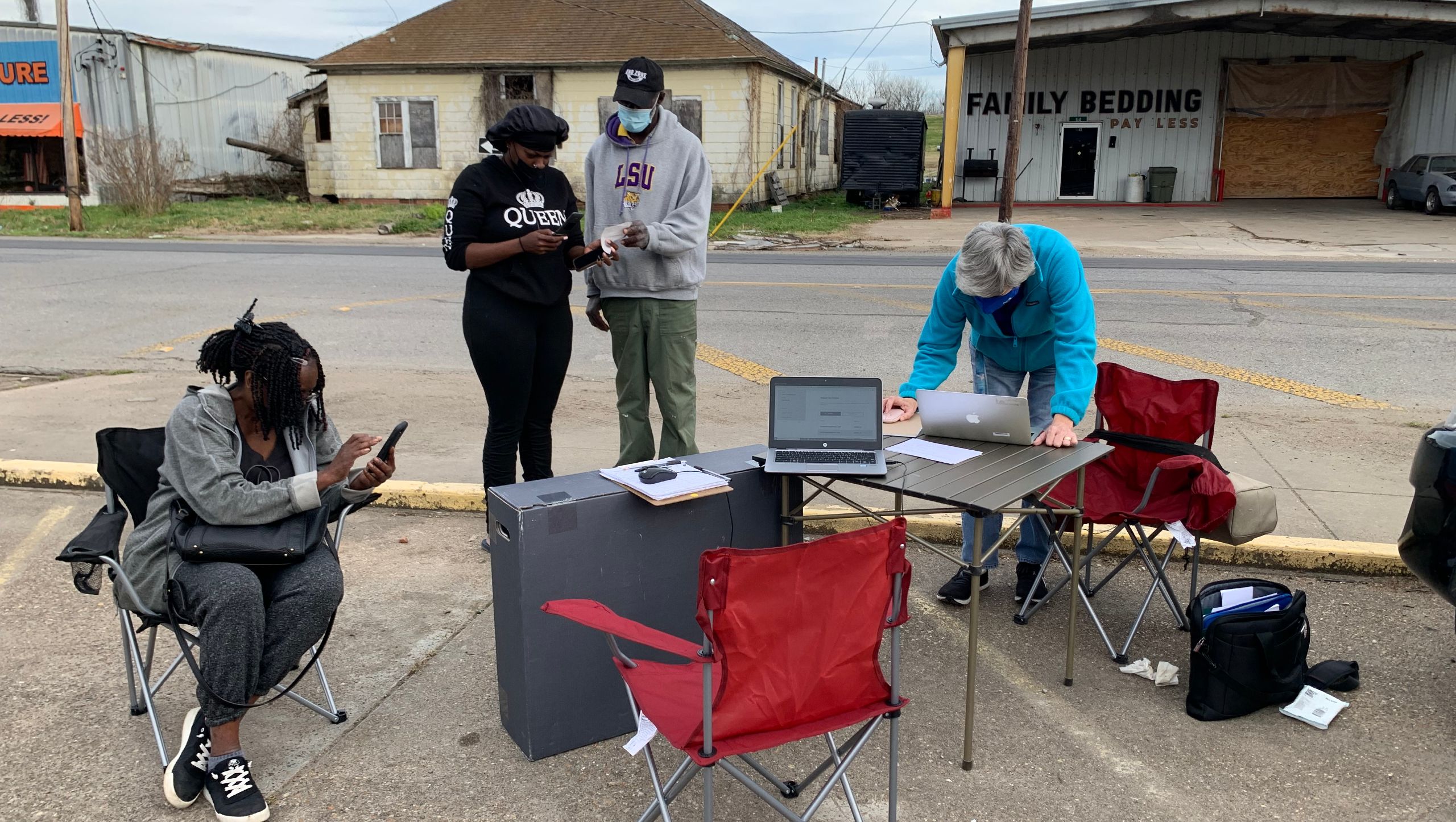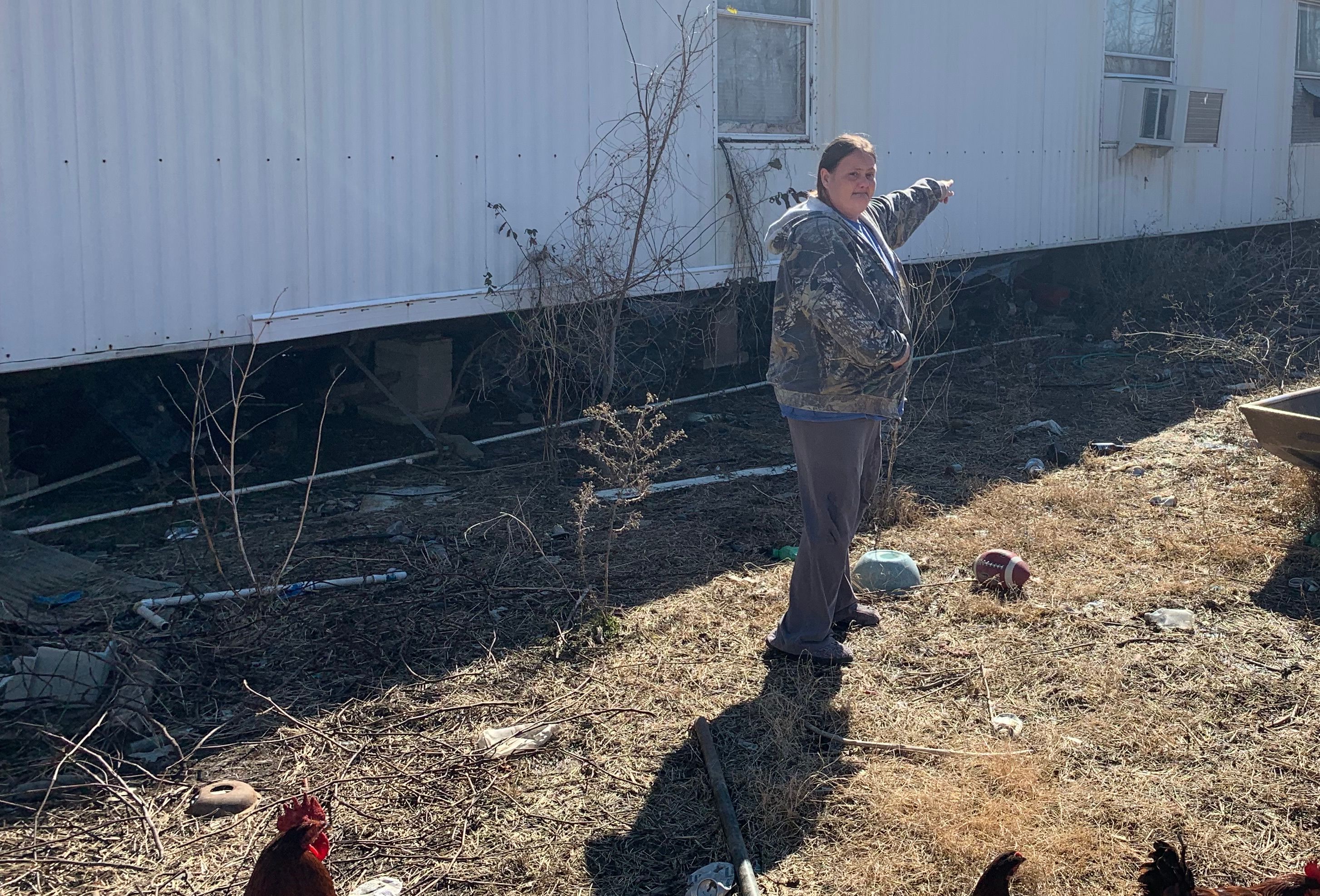East Carroll Parish, Louisiana
A forgotten community takes control of its digital future

A Louisiana town, once labeled the “poorest place in America” by Time Magazine, is building its own broadband network to rewrite this story, and deliver hope and opportunities for residents.
Sitting on the west bank of the Mississippi River by Lake Providence, East Carroll Parish suffers high poverty rates, stark inequality, few job opportunities, and dismal internet service. As a rural, low-income community, it has long been underserved by traditional internet operators, who charge sky-high rates for substandard service. But now residents have had enough and are building their own broadband network that will provide fast, affordable internet, available to everyone in the community.
It doesn't make sense to pay hundreds of dollars for services I'm not receiving. I have to put the kids in the car and drive up the road to get the services I'm paying for. We need services that will help our kids with virtual learning and also doctors’ appointments so that we won't have to travel so far”

Connectivity in East Carroll
60% households have no computer, smartphone or tablet
63% households have no internet subscription
The cost of not being connected
East Carroll’s lack of internet connectivity impacts almost every aspect of life. As an economically distressed area, there is a desperate need for jobs. Yet, most people lack the connection they need for remote work and new businesses are put off from investing because they can’t get the fast broadband they need to thrive. This has contributed to high unemployment in the area. Meanwhile, for those looking for work, a lack of internet access means relying on library computers to apply for jobs. But since the library is closed after 5pm and on the weekends, for many it is not an option.
The Covid-19 pandemic drove home the costs of East Carroll’s digital deficit. Residents and educators saw just how ill-equipped they were to transition to remote learning, as children were unable to keep up with their classwork and fell behind. Teachers described feeling lost and hopeless. In healthcare, too, residents were left with few choices. For many, visiting a doctor means a 70-mile drive, and without a reliable connection, telehealth visits are off the table. Digital poverty reinforces deprivation in a community that urgently needs opportunity and investment.

Bennie Hunter installing satellite internet
Bennie Hunter installing satellite internet

Resident Phyllis Davis talks with digital navigators
Resident Phyllis Davis talks with digital navigators
Economic life in East Carroll
48% residents live in poverty
73% children (under 18) live in poverty
30% households receive food stamps
One in three residents lack a high school diploma
One in four households have an income of under $10,000

“People in East Carroll are tired of paying hundreds of dollars for an unreliable internet connection — if they can get any connection at all. The pandemic was the tipping point. We are building our own internet network to bring new jobs to the community, to improve schooling for students, and to enable residents to access healthcare without driving 70 miles for an appointment. We are bringing hope and opportunity — and we’re doing it on our terms”
Connecting to opportunity
The community has come together to write a new story for East Carroll. Better broadband will benefit every part of the community, from the schoolhouse to the courthouse, as well as retailers, the town newspaper and local farmers, who increasingly need high-tech tools to stay competitive.
For the first time, residents of East Carroll will have fast, affordable service with no data caps. Residents will get access to digital banking, telehealth, and all of the tools the internet provides for entertainment, education and human connection.
Young people will be better able to search for and secure well-paying jobs — without having to move out of East Carroll to seek opportunities. Those who travel far for work will have more opportunities close to home. New firms will be attracted to the area, and existing businesses will be better able to expand.
Children will be able to study from home—whether to do homework in the evenings or remote classes in the event of future lockdowns. The lifeline that was available for many students during the pandemic in other communities will now be available for the children of East Carroll Parish.


Latanya receives a desk from Delta Interfaith to set her up to work from home.
Latanya receives a desk from Delta Interfaith to set her up to work from home.
Latanya's story
Residents like Latanya are already experiencing the benefits of better broadband
After working a low-wage job at a local retailer for several years, Latanya Gray Swift applied at tax-services company H&R Block and successfully secured a role with a higher salary and a promising future. But this job meant a daily 60-mile drive, putting pressure on her time and finances.
Seeing better internet as a route to more opportunity, she reached out to East Carroll Parish Digital Navigators. They were able to provide her with Starlink satellite internet equipment, which gave her a free internet connection for two years. With fast, reliable internet at home, a new world of work was open to Latanya and she was hired by Apple as a remote customer service representative.
East Carroll is now building a scalable fiber network that can provide all residents with the connectivity and opportunities that have helped Latanya build her career.
An internet network by and for people in East Carroll
This transformation is being driven by the community. Spurred by the connectivity gaps made painfully clear by the pandemic, people in East Carroll started to organize to improve internet access. When existing operators told residents to “be happy with what you have,” it was clear the community would have to do it on their terms.
Church-based coalition Delta Interfaith stepped up and organized an internet taskforce. In February 2021 the group partnered with satellite internet firm Starlink to provide emergency connectivity for low-income families with school-aged children. This partnership secured 120 satellite dishes for residents, with two years of free service, enabling students to keep up with their studies online. This partnership was the first step in what would become an ambitious plan to bring reliable, affordable fiber internet to East Carroll.
During this time Delta Interfaith secured a grant from the Louisiana Public Health Institute to create a Digital Navigator program to help residents get online and use digital services — as well as trouble-shoot technical challenges, conduct speed tests to validate the need for better internet, and collect signatures from other residents eagerly awaiting broadband.
The next step was to create a Digital Equity Master Plan, which was made possible through a grant from Connect Humanity. These plans are necessary to turn a project from shovel worthy, to shovel ready. They help to identify residents’ digital needs, define technical requirements, and determine the finances required to build the network.
Armed with a plan, a consortium of East Carroll community-focused organizations, including Delta Interfaith and the Louisiana Public Health Institute, partnered with rural internet service provider Conexon Connect to design and build a fiber-to-the-home network. Fiber, long considered the gold standard of communications transmission, will deliver to East Carroll residents affordable world-class internet with gigabit speeds and proven reliability. To fund the network build, capital was raised through state grants and other sources, including a $4 million GUMBO grant from the state of Louisiana.

“Building your own internet network isn’t easy. Funding, technical knowledge, willing partners, political will and community backing — all of this is hard work. Connect Humanity has been a god-send for the project, helping us with financing, knowhow, and connections to move forward.”
World-class internet for all residents
After years of tireless work from community advocates, Digital Navigators and residents, East Carroll is on course to realize the benefits of lightning-fast, affordable fiber internet.
When completed, East Carroll’s 220-mile fiber-optic network will be available to 2,500 homes and businesses and offer customers some of the fastest connectivity in the country with symmetrical gigabit upload and download speeds. Plans will start from $49.95 a month — far lower than residents currently pay for substandard service.
Community engagement has been central to the success of the project. Assemblies have been held to rally support for change. Local organizations have united to fundraise. Residents have become Digital Navigators to help others in the community access and use the internet. This is a project by and for residents of East Carroll.
To support East Carroll’s Digital Navigator program, email admin@ecpdigitalnavigators.org.
“In a world where internet access is the basis of economic opportunity and basic services, it’s inspiring to see people in East Carroll, who have been underserved and redlined for too long, take their digital futures into their own hands. This is a transformative moment for this community and beyond as they become a symbol of what’s possible.”
With thanks
This case study was created by Connect Humanity and Delta Interfaith. With special thanks to Mrs. Wanda Manning, Larrimi Williams, Nathanael Wills, Laura Arvin, and Stephanie Riegel for their contributions.
About Connect Humanity
Connect Humanity is a non-profit fund advancing digital equity by investing in community connectivity providers. It helps underserved communities identify the right solutions to meet their connectivity needs and provides funding and technical assistance so they can build the internet infrastructure, tools, and skills they need to participate fully in a digital society.
About Delta Interfaith
Delta Interfaith is a broad-based coalition of congregations and community-based organizations in the Louisiana Delta, with the capacity to address community problems large and small. The coalition is deliberate about crossing the lines of race, religion, neighborhood, and political affiliation. It works on issues affecting families and communities, and is a strictly non-partisan organization.


